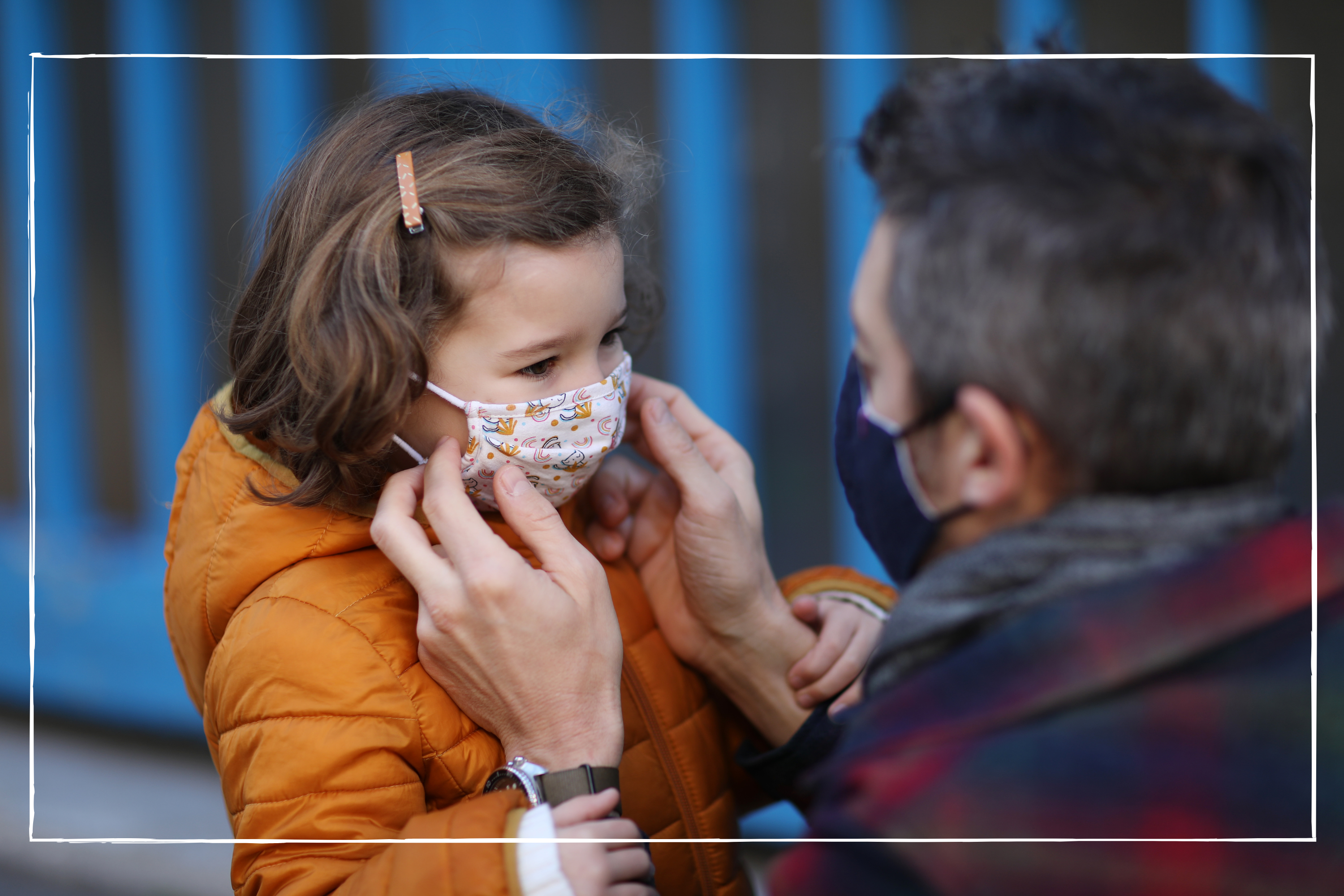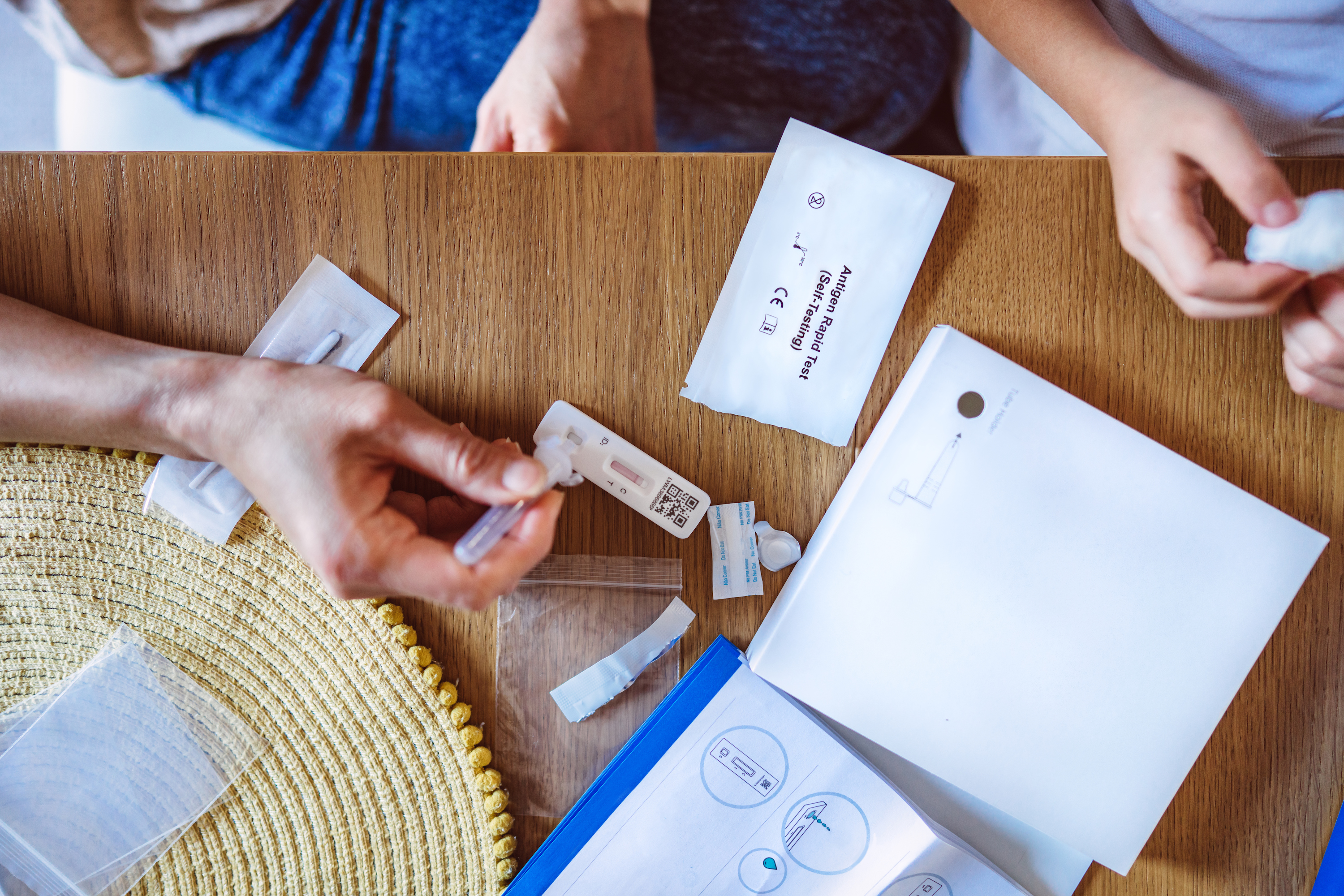Can kids go to school with Covid or if a parent is self-isolating?


The UK's dropping of Covid rules has left many confused about isolation and whether a child can go to school if a parent has Covid. We cut through the jargon to give you the need-to-know information.
The government's Living with Covid plan has brought about an end to previous rules on self-isolation and testing in England. But whilst no longer legally valid, health officials are still asking the public to maintain precaution when it comes to the virus - especially with the recent spike in Omicron symptoms and possibility of people getting covid twice.
Though Covid can be mild for most, the infection can still be dangerous for those that are vulnerable. Which is why many want to do the right thing and isolate when a positive Covid situation occurs. For those living with children of school age, it's a case of continuing to follow the current public health advice. This can help prevent other kids from contracting it and taking Covid home to their families.
Can kids go to school with Covid?
No, any child with symptoms or testing positive with Covid-19 must not attend school and should self-isolate at home instead. They should get tested, isolate for at least five days and only return to school once they have had two negative lateral flow tests.
"If a child has any of the main symptoms or a positive test result, the public health advice remains unchanged and is to stay at home and avoid contact with other people," reads a statement by the Department of Education.
This advice is also supported by the UK Health Security Agency who state that "children and young people with COVID-19 should not attend their education setting while they are infectious".
The same self-isolation practice applies in that kids should do a lateral flow test on days 5 and 6. If both of these show up as negative they can return to school. However, if still positive, they should continue to isolate and test until they receive two negative test results.
Parenting advice, hot topics, best buys and family finance tips delivered straight to your inbox.
Can my child go to school if I have Covid?
Yes, children who do not have Covid-19 can still go to school even if a parent is positive. The UK Health Security Agency state that they should continue to attend their education setting "as normal". So long as they are testing negative and are displaying no Covid-19 symptoms.
"Children and young people who usually attend an education or childcare setting and who live with someone who has COVID-19 should continue to attend the setting as normal," reads a statement on the government website.
If your child starts presenting with a new continuous cough, a high temperature or loses their sense of taste and smell, then they should perform a lateral flow test to rule out Covid. And this should be done before being sent to school.
According to Health Service Ireland (HSE), if they have "tested negative and have not had any new symptoms for 48 hours" they are fit to attend school.
Diarrhoea
Whilst it's important to look out for the usual Covid-19 symptoms, health officials are also warning of another symptom. HSE advise keeping a child at home if they have diarrhoea and are aged 12 and under. This is based on new research which suggests this to be a sign of Covid-19 in kids.
One 2021 study in the Journal of Medical Case Reports stated that "dysentery may be the only presentation" of Covid-19 in children. Whilst another published in the Archives of Disease in Childhood suggests that gastrointestinal symptoms like diarrhoea is prevalent in kids who are testing positive with Covid-19.
"We are finding that diarrhoea and vomiting is a symptom reported by some children and I think adding it to the list of known symptoms is worth considering," said Dr Thomas Waterfield, lead author of the study.
Nevertheless, if you're confident your child has none of the above symptoms, then sending them to school is the right course of action.
Can a child to go to school if I am self-isolating?
Yes, you can send your child to school if they are testing negative and have no symptoms whilst you are self-isolating with Covid-19. During your isolation period, you should minimise contact with your child and take steps to prevent the spread of Covid in your household.
The government recommends these measures when self-isolating to reduce the risk of spreading Covid in your household:
- Avoid or spend as little time possible in shared areas like kitchens and living rooms. If you do need to be in the same room as negative-testing people then wear a surgical face mask and open windows and doors to aid ventilation.
- If possible, try to use a separate bathroom to everyone else in the household.
- Cover your mouth and nose with a tissue when coughing or sneezing to catch particles. Then dispose of the tissue in a rubbish bin.
- Wash hands frequently - especially before and after food.
- Regularly clean surfaces like door handles and remote controls. Also wipe down surfaces in shared areas like the kitchen and bathroom.
"Many people will no longer be infectious to others after 5 days," states the government website on self-isolation practices. They advise people to do a lateral flow test five days after your symptoms start. And another test the day after.
"If both these test results are negative, and you do not have a high temperature, the risk that you are still infectious is much lower and you can safely return to your normal routine," they add. You should record your lateral flow test results online after taking each test.

Meanwhile, if you child starts developing Covid symptoms whilst your are self-isolating you should order a PCR test. They should also self-isolate whilst waiting to find out if the test is positive or negative. And if negative, they may return to school.
Can a child go to nursery if I am self-isolating?
Yes, toddlers can still go to nursery if a parent is self-isolating - so long as they are not showing any Covid-19 symptoms. The same rules apply as if it were a child going to school. During this time, the positive parent should refrain from dropping or picking their kid up from nursery. And additionally maintain minimal contact to avoid passing it onto their child and others.
Video of the Week:

Emily Stedman is the former Features Editor for GoodTo covering all things TV, entertainment, royal, lifestyle, health and wellbeing. Boasting an encyclopaedic knowledge on all things TV, celebrity and royals, career highlights include working at HELLO! Magazine and as a royal researcher to Diana biographer Andrew Morton on his book Meghan: A Hollywood Princess. In her spare time, Emily can be found eating her way around London, swimming at her local Lido or curled up on the sofa binging the next best Netflix show.